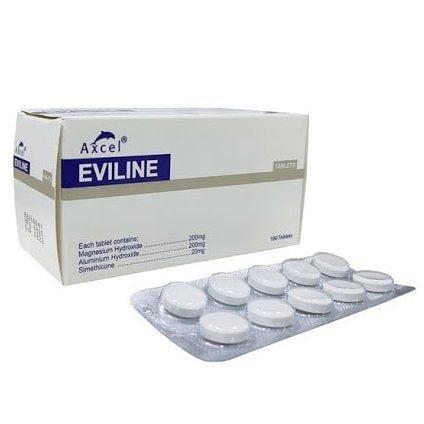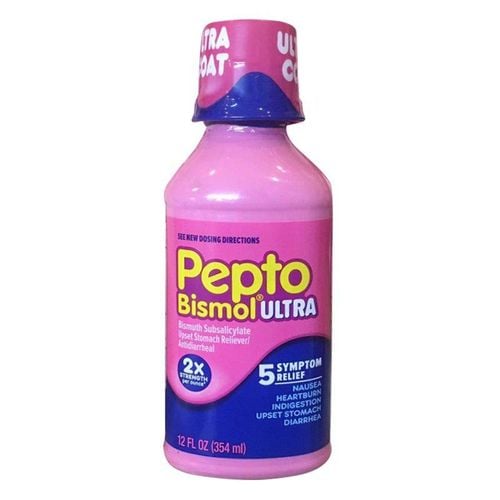This is an automatically translated article.
Children often have bloating and indigestion due to their location or parents' mistakes in their diet. Every time they have a full stomach, indigestion, children will be extremely tired and uncomfortable, leading to anorexia, affecting health.1. Why do children often have indigestion?
First, you need to understand the common symptoms when children are full of gas and bloating. Usually, when having stomach fullness, indigestion, children may have one or some of the following symptoms:After eating for 1-2 hours, the child's abdomen is still full and full. When you pat the baby's belly, it will make a sound like a drum. The child may have a tingling stomach. Suddenly the child is fussy, irritable, irritable, stops eating, or loses his appetite more than usual. Children have nausea or vomiting. Children have frequent farts, loose or viscous stools, sometimes constipated. Children may have difficulty sleeping at night, sometimes crying due to colic. When children have abnormal signs in the digestive tract, you will often be confused and forget to find out what the cause of the child's disease is. Because only when you know the cause, you can find solutions to treat your baby's indigestion faster and more effectively.
Some causes of baby's condition that often cause bloating and indigestion are:
Mother's diet: In the first months of life, the baby's main source of nutrition is milk and most of it is breast milk. Therefore, if the breastfed infant shows signs of indigestion, the mother should immediately think of the first cause as the mother's diet. Maybe the mother has eaten unsafe food, undercooked, cold food or highly soldered food. Sudden change in diet: In the first years of life, the baby's digestive system is still quite sensitive, so changing your baby's diet suddenly can make the baby's body not adapt quickly. This condition is common during the transitions between foods. Lactose intolerance: This condition occurs when a child's body does not secrete or secrete enough lactase enzyme to digest foods containing lactose such as milk. When lactose is not metabolized, it will be fermented by bacteria to produce gas, causing anorexia in children. Children allergic to milk proteins: When children are allergic to one or several proteins found in milk, in addition to bloating and indigestion, they may vomit, have difficulty breathing, and have diarrhea. Due to children taking antibiotics or other drugs: When the antibiotic enters the digestive tract, it will destroy both pathogenic and beneficial bacteria, thereby disrupting the intestinal microflora. This will cause digestive problems for children leading to diarrhea, bloating, and indigestion. Children with digestive disorders (gastroesophageal reflux, constipation, diarrhea): When children have gastroesophageal reflux, food and gastric juices are pushed back from the stomach to the esophagus. At that time, children are prone to vomiting, belching, and bloating. When stools are stuck in the colon due to constipation, it will create favorable conditions for anaerobic bacteria to ferment gas, causing bloating in children. When children have diarrhea, they will lose electrolytes, causing bloating.

Rối loạn tiêu hóa là một trong những nguyên nhân khiến trẻ hay bị đầy bụng khó tiêu
2. Children with bloating and gas, what to do?
There are many ways to deal with the child's stomach upset or indigestion. Each way will be suitable for the cause and each age, certain developmental stage of the child. You can choose one or a combination of some of the following ways to overcome bloating and gas in your baby.Baby belly massage: After the baby has eaten for 30 minutes, use your fingers to gently rotate on the baby's belly clockwise from the navel to the outside. You can use massage oil to both help reduce friction on your baby's delicate skin, and help your child relax and feel more comfortable. Help your baby fart: You can help your baby get the air out of his stomach by holding him close to your chest, leaning back slightly, or by holding him so his belly is flat on your arm. Then, use your hand to stroke the baby's back to make it easier to fart. This method can also be used to treat colic in babies, you can also put the baby on his back, grasp the leg near the knee of the baby, then slowly push one leg up to the chest, push the other leg down. below. Then you switch sides and repeat this cycling movement. This movement will also help reduce gas in the abdomen effectively. Warm the baby's belly: Take 2 hand towels, dip them in hot water and wring them out. You need to feel the heat appropriately so as not to burn the baby, you put a folded towel on your belly, then use the other towel to wrap around your belly to fix it. The weight and heat from the towel will help push the excess air out of the baby's belly more easily. Help the baby burp: This is recommended by doctors after feeding the newborn to reduce the symptoms of vomiting and gastroesophageal reflux. When the child is suffering from gas, this is even more necessary. Hold your baby so his head rests on your shoulder, then gently pat him on the back until he makes burps. Supplementing probiotics for children: Probiotics have the effect of supporting the treatment of diarrhea, constipation, abdominal distension, flatulence, indigestion due to intestinal dysbiosis, bacterial infections, viruses, parasites, taking antibiotics birth or other causes.

Men vi sinh có thể cải thiện tình trạng trẻ hay bị đầy bụng khó tiêu
For more nutritional knowledge and child care for each age, parents should regularly visit the website vimec.com and make an appointment with the leading doctors, pediatric and nutrition experts of the National General Hospital. Vinmec when needing advice on children's health.













